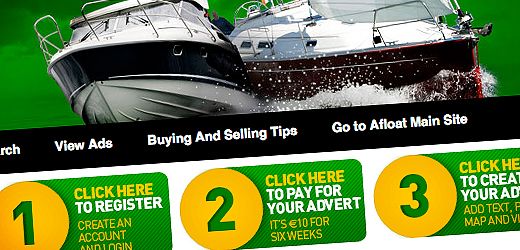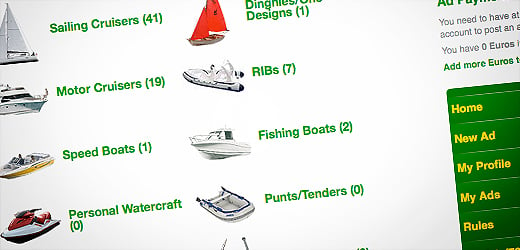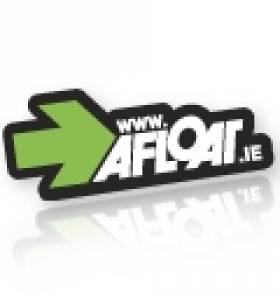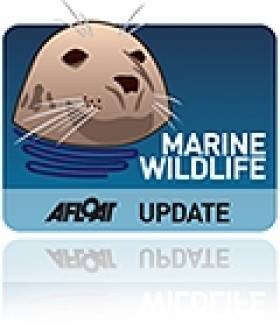Displaying items by tag: advertising
New Improved Irish Boats for Sale Site
Your feed back told us that you're fed up with 'free ad' sites cluttered with junk. You asked for one with real ads, real boats, and real value.
So we've introduced a modest charge on our site to discourage the posting of fictitious boats. It costs 10 Euro for 60 days.

Our aim is to offer Ireland's largest range of quality boats for sale.
With upwards of 3,000 visitors per day and 70% of traffic from search engine queries, Afloat.ie is the number one boating portal site in Ireland.
Select the category of boat (from sailing dinghies to motor cruisers) you wish to browse and click away to find your next boat!

There's tips too for buyers and sellers covering choosing a boat, asessing value, financing a boat, advertising a boat for sale and the necessary paperwork.
Our aim is to provide an independent quality alternative where Irish boat buyer can meet Irish boat seller at a cost-effective price.
If you're selling a boat, register and place your ad in three easy stages for as little as €10.
Fáilte Ireland in Whale Advert Gaffe
Fáilte Ireland has come under fire for an advert that shows a whale that cannot be found in Irish waters.
According to the Irish Examiner, the Irish Whale and Dolphin Group (IWDG) has questioned by images of humpback or fin whales, which are a common sight off Ireland's coast, were not used instead.
The IWDG'sSimon Berrow said: "It’s great that we are promoting marine tourism but if we are serious about it, let’s do it properly."
Last year Fáilte Ireland was criticised for a similar advertisement that used stock footage of a whale species not found in Ireland.
The Irish Examiner has more on the story HERE.

























































